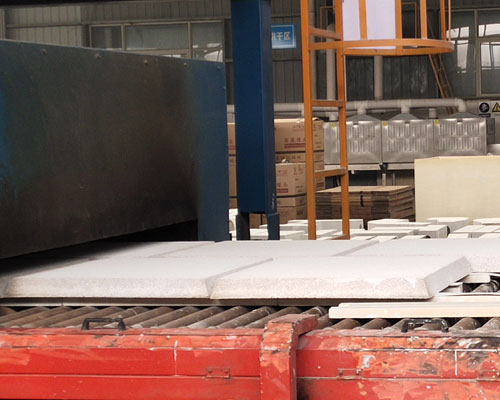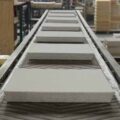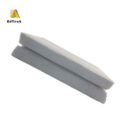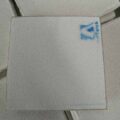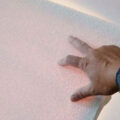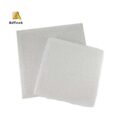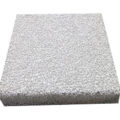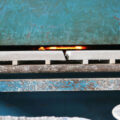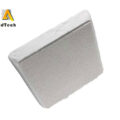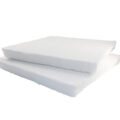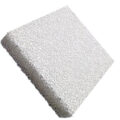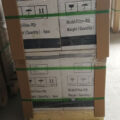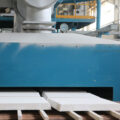AdTech specially designed Alumina Ceramic Foam Filters for aluminum foundry are made of the basic raw material Aluminium Oxide. They are manufactured with porosities varying from 10 to 60 pores per inch (PPI). Also, combo sets are made in 20-30 PPI and other selections are possible. Different sizes and custom-made filters are manufactured according to specifications.
Alumina Ceramic Foam Filters Features:
– A homogeneous pore structure
– High surface strength
– Temperature resistant up to 1100°C
– Excellent resistance against chemicals used in foundries
The Ceramic Foam Filter for Foundry has an open cell structure with a distribution of connected voids that are surrounded by webs of ceramic material. Such a structure is commonly used for molten metal filtration and is known in the industry as ceramic foam.
The ceramic foam filter for casting has a thermal expansion rate in the range of 1.5-7.5×10−6 mm/mm/° C. More preferably the ceramic foam filter has a thermal expansion rate in the range of 5.0-6.0×10−6 mm/mm/° C.
The ceramic foam filter is shown to be resistant to chemical attack by molten aluminum alloys under typical use conditions.
The ceramic foam filter is lightweight with a preferred density of about 0.25-0.40 g/cc.
The filter is shown to be substantially non-reactive and does not generate phosphine gases or reactive materials after filtering molten aluminum alloys. The state-of-the-art phosphate bonded alumina filters have been shown to generate phosphine gases and to be subject to catching on fire after use.
It is preferable to incorporate ceramic fibers, which strengthen the material. Particularly preferred fibers include alumina, silica, and silicates of aluminum, magnesium, calcium, and combinations thereof. Fibers are particularly preferred. Fibers comprise about 47 wt % Al2O3 and about 53 wt % SiO2. Other preferred fibers are magnesium silicate or CaMg silicate.
The filter has its primary porosity imparted by the macrostructure of the foam, which is an exoskeleton of the polyurethane precursor, which is replicated by coating with slurry followed by drying and firing. The primary pore size is typically 3 to 100 PPI and more preferably 20-60 PPI.
Using the right High-Temperature Materials Ceramic Foam Filters for Foundry will affect your productivity in a positive way!

